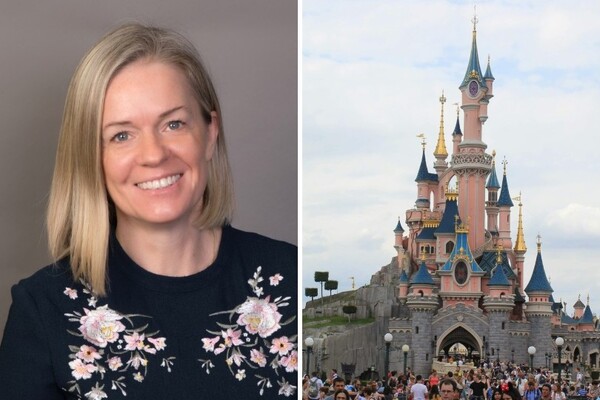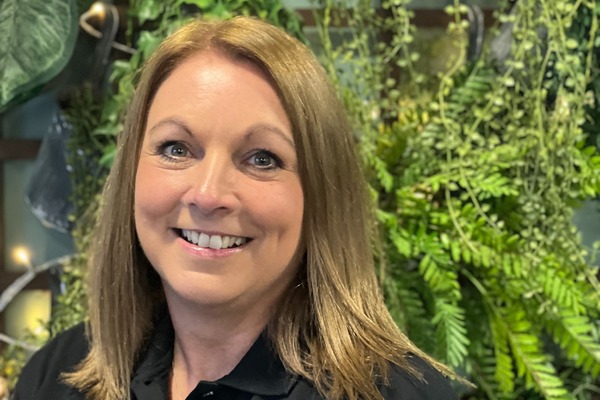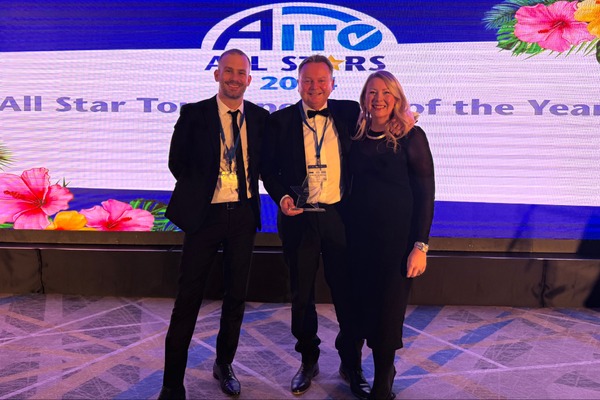Get Travel Leaders Talking with Midcounties' Rad Sofronijevic
 Tom Parry
Tom ParryRad Sofronijevic, chief operating officer of the Midcounties Co-operative, speaks to TTG Media CEO Dan Pearce in the first in our weekly Get Travel Leaders Talking video series – looking at what strategies travel’s most senior leaders have used to get them through the Covid crisis.
How have you been looking after your mental health and physical wellbeing over the past few months?
“I think anyone that knows me knows I like to talk! And I think that’s really important in terms of mental health. I think you need to try to talk about how you’re feeling, be really open. With both my team, and myself I encourage it with everybody.
“It’s not a formality, I think we genuinely care and that makes such a difference. So I think talking is really important. Talking is the most important thing I think when it comes to mental health and, and I think being open and not having a stigma about anything. People shouldn’t be afraid to talk about mental health and, and almost treating it as if you had a physical illness.
“You wouldn’t be ashamed to say I’ve broken my leg or whatever, but equally, if you’re not having a good day or you’re having challenges with your mental health, that’s absolutely fine too.”
“Having a support network around you, whether that’s family, friends, work colleagues, I think that’s really important. That’s really helped me. So over the last 12 months with my own personal challenges I think that really been good for me – and accepting that you have good days and bad days. And we’ve had plenty of those. You know, lots of bad days, but equally balanced with some good days and you have to recognise those and recognise that is normal, and that’s the situation we’re in.
“Travel people are people, I know everyone says it but we are. And this challenge over the last 12 months has been really hard because we want to be with people – we don’t want to be sat at home, and talking over video all the time and everything.”
What strategies have you been using around your physical wellbeing?
“I’m rubbish at it! I don’t go to the gym. I don’t run, I don’t do anything like that and never have done really. But I do walk more, I check my steps, particularly on weekends, not much in the week, I’m afraid. But I do drink more water. That’s really good for your mental health as well. So whether it’s physical or mental, they both have an impact on each other. I’m definitely eating better as well, which is really good, you know, so I have breakfast, I never used to have breakfast all the time.”
What strategies have you been using to strengthen your personal resilience?
“I think that resilience isn’t just about mine. It’s about the team overall and the impact that we have on each other, it’s about the team’s resilience. I think just thinking positively and looking for opportunities builds up resilience, and telling each other that this isn’t going to last forever. Knowing that there are better days ahead, you know, I think that’s been really important as well.”
What’s been your most challenging moment of the crisis?
“I don’t think there has been one most challenging because there have been so many challenges from the very start – starting with making sure that we were all able to work remotely from home. That was really stressful. And setting up seamless remote support overnight, not only for our branches, but for our consortium, for our Personal Travel Advisers and just being able to be there for everybody remotely.
“One of the biggest challenges for me personally was the redundancies that we had to make. The timing was really hard because at the same sort of time, we were acquiring some businesses. So in some ways, in one respect, you’re saving jobs. And then in the next respect, you’re also making redundancies and you are impacting people’s lives. That’s really hard, but you have to make the right decisions for today, but also for tomorrow.
“And then for me personally, I lost my mum last June, so that was really hard. She went into hospital during lockdown. And then she went... and we had the funeral in Croatia, so then sorting out the repatriation and a funeral during lockdown and all the challenges of travel. And then you’ve got the day job on top of that. So I think one of the biggest lessons is, you never know what’s going on in someone’s life.”
“When you talk to each other on screens all the time it’s not the whole picture and not everybody knows everything that’s going on. So one of the biggest things is being kind, being kind to others because you don’t know what’s going on in people’s lives, but equally being kind to yourself.”
What steps have you taken to look after your team at Midcounties Co-operative, and the agents?
“Most recently we’ve been running some wellbeing sessions in partnership with Mind. They were all voluntary, but we had really good attendance. And they were really focused on how can we help with areas such as free counselling sessions, support with either debt management, legal, grants for financial challenges.
“The biggest benefit was people sharing their experiences, people asking Mind questions about how to deal with certain things. How do you deal with, you know, not being able to sleep at night - or sleeping too much, or feeling guilty for being on furlough when some of your team are working... that open conversation was the biggest benefit there. So we’re going to be running a session for managers as well, and working to make sure they are ready to support the colleagues at transitioning back to up to the workplace.”
“Some people haven’t worked for many months, so it’s getting them back in a way that they feel comfortable with and knowing that quite a few of them are anxious at home at the moment. And I learned a new word called rumination! There’s a lot of ruminating when you have too much time on your hands. And a lot of people have been anxious because they’ve had too much time on their hands.
“So I think we’ve got a job to do too to make sure that all our colleagues are ready to come back and they come back in a positive way as well. Working with Mind has been great for advice, but I think the biggest understanding is that there’s no ‘one size fits all’. Everyone has individual challenges and everyone has an individual way that they can deal with them. It’s about giving them, you know, almost a toolkit.”
What positive lessons have you discovered about yourself, or the company, during the crisis? Will they change the way you run the business in future?
“We carried out a survey a couple of weeks ago, with all of the colleagues across our society about their wellbeing. Over 80% of our colleagues in travel and do feel that that they’re cared about by the society. And that was really positive... I think our colleagues know that we care about them. They also scored us very highly on resources as well. So they know where to look for information.
“We still need to work on work-life balance. That’s still a challenge, particularly at the moment, I think where we’ve got people working from home, it’s harder to create that separation between work and home, and there will still be some elements of remote working for some time. But agile working is much more accepted now and we need to support our team them with that separation.
“For me I used to drive to work and in that half hour every morning, you’ve got thinking time, it’s a mind-set, isn’t it – you prepare for the day. I don’t have that now, I get up and go straight to the next room! So it’s about how you create those moments if you are working remotely.
"We also want to make sure people feel comfortable to talk to their managers - 71% of our colleagues said they felt comfortable talking to their line manager if they were struggling with a mental health. But that does show that nearly a third of people are still not comfortable talking about it so there is still work to do.”
For more mental health resources visit TTG’s Mental Health Hub and look out for more Get Travel Leaders Talking videos being released every Wednesday.
Sign up for weekday travel news and analysis straight to your inbox

Tom Parry
Supplier Directory
Find contacts for 260+ travel suppliers. Type name, company or destination.













